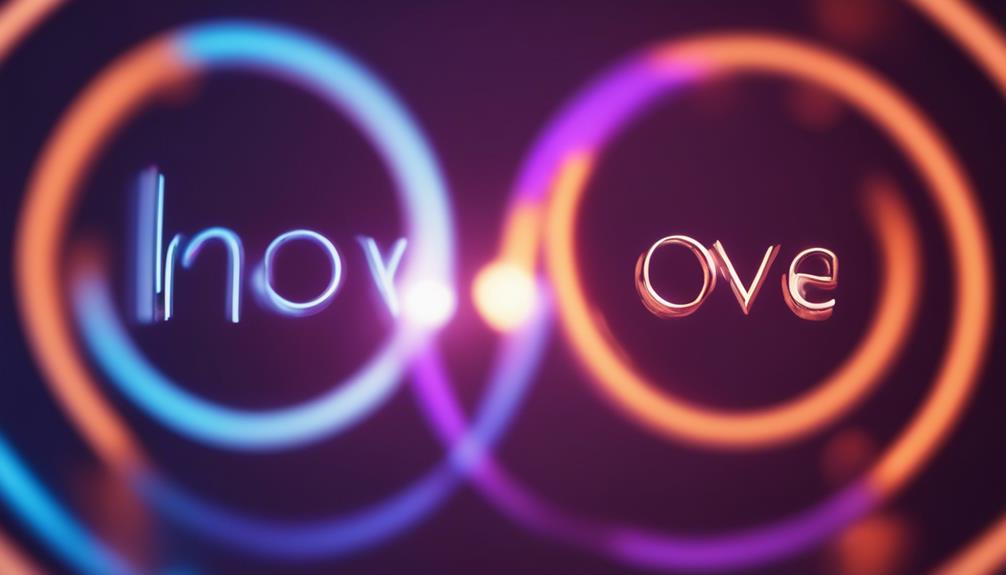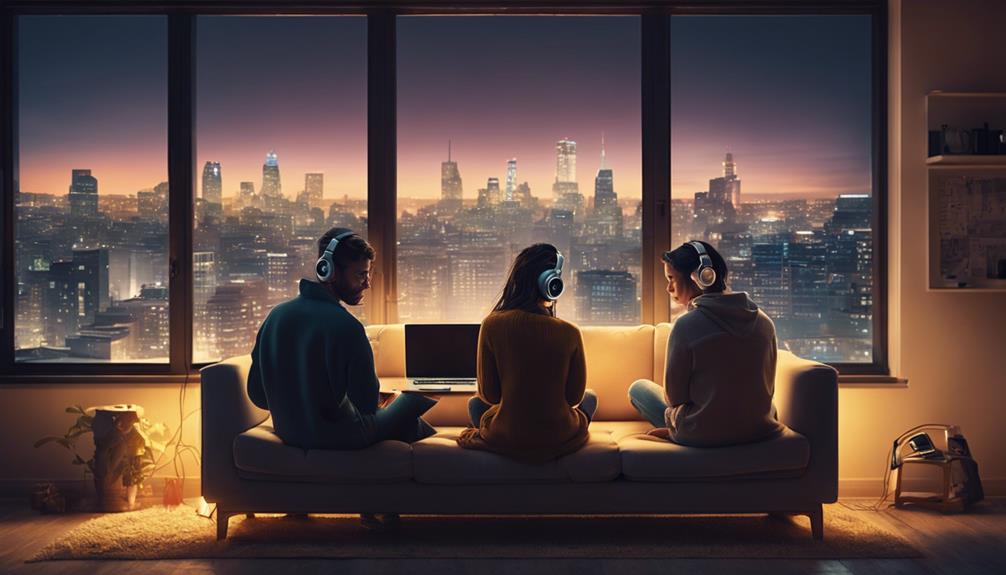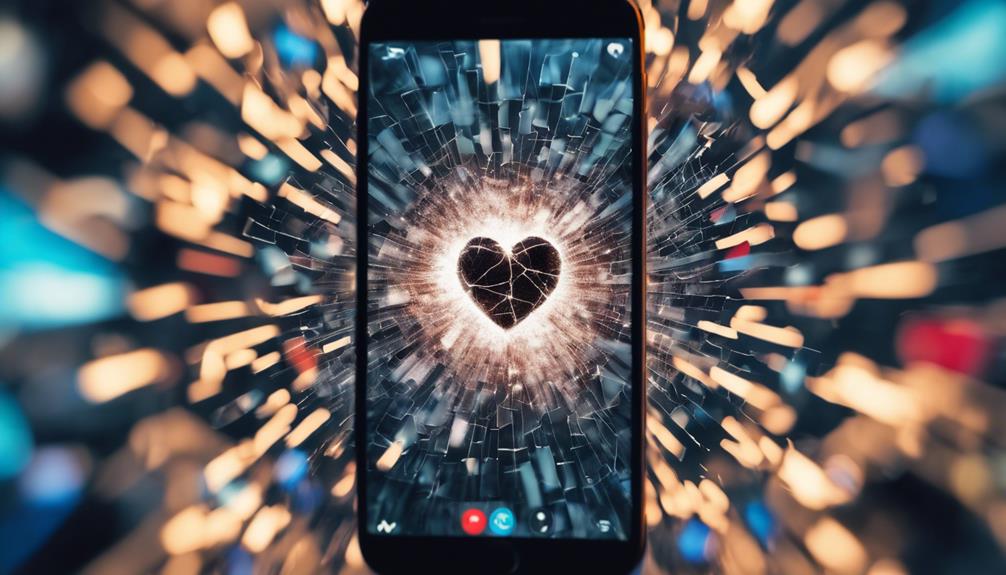Online love, unfettered by physical interaction, fosters idealized perceptions and intense emotional connections, often rivaling those in traditional marriages. In online relationships, communication dynamics are rewired, allowing individuals to open up more freely and create idealized perceptions of partners. The brain's response to digital communication activates the reward system, releasing feel-good chemicals like dopamine, leading to intense emotional connections and even psychological obsessions. This digital love can fulfill unmet emotional needs, threatening traditional relationships. As priorities shift toward online connections, the boundaries between online and offline relationships continue to blur, sparking questions about the future of love and relationships.
Key Takeaways
• Online relationships can spark intense psychological obsessions due to the brain's response to digital communication, releasing feel-good chemicals like dopamine.
• Digital communication dynamics have rewritten intimacy rules, allowing individuals to open up more freely and fostering idealized perceptions of partners.
• Online love can fulfill unmet emotional needs, leading to a shift in priorities towards online relationships and rivaling traditional marriages.
• The lack of physical contact in online relationships can create heightened sexual tension, intensifying emotional connections and idealized perceptions.
• Online relationships can develop intense emotional connections quickly, potentially leading to an addiction-like state and redefining traditional notions of intimacy and love.
Different Forms of Love
While languages have distinct words to differentiate between romantic and long-term love, online relationships often blur these lines, developing at an accelerated pace due to the lack of face-to-face interaction.
In online relationships, communication is more open, and lovers tend to idealize each other, fostering a sense of intimacy. Emailing and texting can create idealized perceptions of partners, further fueling the accelerated development of romantic feelings.
This online dynamic can lead to intense emotional connections, making it challenging to distinguish between romantic and long-term love. As a result, online relationships can quickly become all-consuming, often leaving individuals wondering which type of love they're experiencing.
Psychological Obsessions
Online relationships can spark intense psychological obsessions, fueled by the brain's response to the constant flow of digital communication. This can activate the brain's reward system, releasing feel-good chemicals like dopamine and creating a cycle of craving and pursuit.
This can lead to an addiction-like state, where individuals become fixated on the digital connection, neglecting other aspects of their lives. The lack of physical interaction can heighten the sense of mystery and idealization, further fueling the obsession.
As a result, online lovers may experience intense emotional highs and lows, similar to those experienced in drug addiction. This intense emotional rollercoaster can be all-consuming, making it challenging to distinguish between reality and fantasy.
Online Vs. Traditional Marriage

Traditional marriages often struggle to compete with the intense emotional connections and idealized perceptions that can develop in online relationships. This disparity can lead to challenges in traditional marriages, as online affairs may provide emotional fulfillment lacking in the primary relationship. The allure of online love lies in its intensity and novelty, making it a formidable rival to traditional marriages.
| Traditional Marriage | Online Relationships |
|---|---|
| Often lacks intense emotional connections | Develops intense emotional connections quickly |
| May lack idealized perceptions | Fosters idealized perceptions and fantasies |
| Physical contact and intimacy are present | Lack of physical contact can lead to heightened sexual tension |
| Communication can be more mundane | Open and direct communication is facilitated by technology |
Digital Communication Dynamics

Through the veil of screens and wires, digital communication dynamics have rewritten the rules of intimacy, fostering a sense of closeness that transcends physical distance. Online relationships develop faster due to the lack of face-to-face interaction, allowing individuals to open up more freely. Digital communication can create idealized perceptions of partners, with emailing and texting facilitating deeper emotional connections.
Online communication can foster deep emotional connections, often more intimate than in-person interactions.
The lack of physical contact can lead to heightened sexual tension, further intensifying online relationships.
Technology facilitates open and direct communication, allowing online partners to project desired qualities onto each other.
Threats to Traditional Relationships

As digital communication continues to reshape the landscape of intimacy, the intensity of online relationships has become a potent rival to traditional marriages, posing a significant threat to their very foundations. Online love can fulfill unmet emotional needs, creating an allure that's hard to resist. This can lead to a shift in priorities, making traditional relationships seem dull in comparison.
The excitement and novelty of online connections can be overwhelming, causing partners to become obsessed with their online lover. Additionally, the lack of physical contact can create a heightened sense of anticipation, further fueling the obsession. As a result, traditional relationships may struggle to compete, leading to a decline in commitment and intimacy.
Frequently Asked Questions
How Do Online Relationships Affect Self-Esteem and Personal Identity?
She finds that online relationships can greatly impact self-esteem and personal identity. As individuals idealize their online partners, they may experience a boost in self-confidence, feeling attractive and desired.
However, when the relationship ends, this idealization can lead to a crash in self-esteem, as the individual's sense of identity is closely tied to the online relationship. This rollercoaster of emotions can be particularly challenging for those already struggling with self-doubt or low self-esteem.
Can Online Love Be a Healthy Outlet for Emotional Expression?
Can online love be a vital outlet for emotional expression?
It's a question that gets to the heart of what online relationships can offer. While online love can feel exhilarating and intense, it's important to recognize that it often stems from idealized perceptions and unmet desires.
In reality, online relationships can be a double-edged sword, providing a sense of emotional fulfillment while potentially threatening traditional relationships.
Do Online Relationships Have a Higher Infidelity Rate Than Traditional Marriages?
Research suggests that online relationships may have a higher infidelity rate than traditional marriages. The anonymity and lack of accountability in online interactions can create an environment conducive to infidelity.
Additionally, the instant gratification and constant availability of potential partners online can foster a culture of disposability, leading individuals to seek new connections when existing ones become unsatisfying.
What Role Does Social Media Play in Facilitating Online Affairs?
Social media plays a significant role in facilitating online affairs by providing an accessible platform for people to connect with others anonymously.
It allows individuals to curate a perfect online persona, hiding their flaws and imperfections, which can lead to idealized perceptions of partners.
Social media's instant messaging and direct messaging features enable rapid communication, fostering intense emotional connections and deep conversations that can escalate into romantic relationships.
Can Online Love Be a Catalyst for Positive Change in Traditional Relationships?
She notes that 40% of online affairs lead to offline meetings, underscoring the potential for online love to catalyze positive change in traditional relationships.
Online love can foster deeper emotional connections, encouraging partners to re-evaluate and revitalize their primary relationships.
Conclusion
To sum up, online love has emerged as a formidable rival to traditional marriages, with a staggering 40% of online relationships culminating in marriage or long-term commitment.
This statistic underscores the intensity and allure of online connections, which often outshine traditional relationships in regard to emotional fulfillment.
As digital communication continues to evolve, it's crucial to acknowledge the psychological aspects of online love and its implications for traditional marriages.









